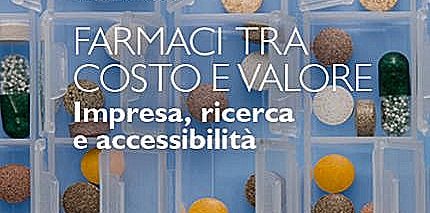If in Italy about 12 million people are unable to get treatment, this reveals much more than the economic crisis of our health system: it reveals the state of health of our democracy, of that principle of equality of 1978. Because it was the year in which the establishment of the National Health Service, has been declined as a principle of equal access to treatment. The process of dismantling that model is revealed in the "financialization of the drug".

The (global) question of denying access to high-cost innovative medicines is presented as a question of "economic unsustainability" for the National Health Service, when instead what is "socially unsustainable" is the absence of public intervention. Already in 1978 the law expressly affirmed the "social function of the drug" and the "main public purpose of production"; and today public intervention to guarantee access to medicines would have the opportunity to be implemented through multiple instruments: the granting of compulsory licences, self-production, transparency in the negotiation of the prices of reimbursable medicines, a "correct methodology for of costs".
In 1978, the same year in which the model of the Public Health Service was designed, the Italian Constitutional Court declared the illegitimacy of the law which forbade the patentability of drugs. Among the arguments of the Consulta: the absence of a correlation between the price increase and patent coverage, the presence of an incisive authoritative public intervention and the need to guarantee the pharmaceutical industry (through the patent) to cover the costs of research. These arguments would not be tenable today. Let's take the same case of Sovaldi as an example: Gilead did not invest in innovation but acquired the company that had patented the drug (Pharmasset) and the Italian drug agency itself (which negotiates the cost of reimbursed innovative drugs with the manufacturers) reports that through the drug Sovaldi, Gilead saw its corporate value grow significantly, proposing a price (later negotiated) much higher than that initially imagined by Pharmasset.

The question, which is destined to arise again for other pathologies, different from hepatitis C, is representative of a different way of understanding the protection of health and more generally the rights of the person. An increasingly "individual" protection, very different from what the Constituents affirmed as a fundamental right and interest of the community (therefore in a double meaning, individual and collective together).
The issue is not only national. In the face of the global drug market, a European pharmaceutical policy is needed. The European Medicines Agency (EMA) has no competence in negotiating the prices of reimbursable medicines and does not represent "the Europe of medicines". Its headquarters are in London, but for a short while, pending the inevitable move after Brexit. Several European cities are applying to welcome the new headquarters. For Italy: Milan. The imagined headquarters: Palazzo Pirelli. Prime Minister Gentiloni presented the candidacy as "a great opportunity for our country". We would like to be able to hope that our institutions by "great opportunity" mean the opportunity to define a European pharmaceutical policy, to coordinate national agencies and to oppose the negotiation of unsustainable prices for new medicines.
Alice Cauduro University of Turin. Author of Access to drugs, Milan, Ledizioni, 2017
Related news: Hepatitis C, Milanese pensioner wins legal battle: low-cost life-saving drugs from India
Importazione di farmaci autorizzati all’estero, chiarimenti del Ministro Lorenzin
